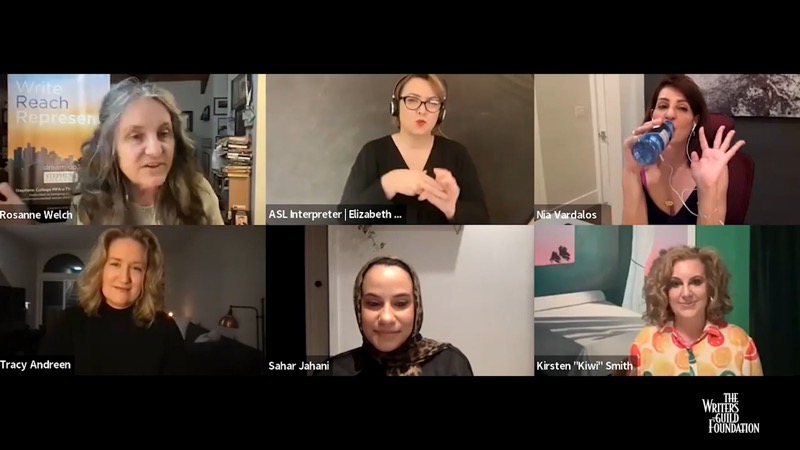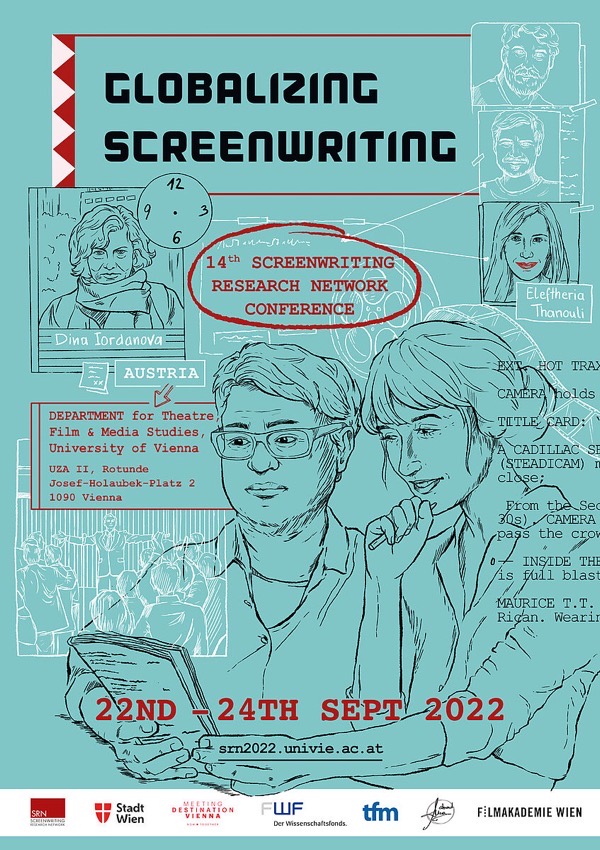Transcript:
Face it. there is not another show that got a 50-year anniversary on television that was a narrative piece of work. This is not something that happened. Every time, even when we checked in the hotel the other day and we were trying to explain “Doctor Who” to the lovely women behind the counter. Well, how can a show be on the air for 50 years? Because the writers were so smart that when – as we all know Hartnell was feeling ill and they thought oh no we’re gonna have to stop – they said wait a minute. He’s an alien. He doesn’t have to die. He can change completely. Which is a beautiful writer’s idea which has given us the chance to enjoy so many different actors over the years including of course Tom and we’ve gone all the way through to my favorite is Peter Davidson of the old Who and then the fact that they could reboot and be something that children two generations later are still enjoying. So this 50-year thing, let’s face it, doesn’t happen and they’re gonna have a 60th-year anniversary. 60 years on television with the same general format. This isn’t done. The only other people that have been on the air that long are soap operas and game shows and they stay and stay and stay. The funny thing is, in the game shows they’ve had some of the same lead men for all those years. It’s fascinating when that’s a changeover. I mean sadly we lost Alex Trebek. So now there’s this great change over but “Jeopardy” is not going away. So because they’re not narrative they can continue for all these years.
In this presentation given at the 2022 San Diego WhoCon I had the chance to trace the many ways Doctor Who changed the TV universe. By focusing on the interesting and innovative things the many writers did with the show across the years we were able to see the Who footprint by becoming the first narrative program to reach 50 years on the air, the first to create a spin-off across the ocean, and a show alongside Star Trek that created the Con-craze that brought the world of cosplay to the mainstream. Perhaps most importantly, a love of Doctor Who lead more Americans to watch programming from other countries – from Korean dramas to Mexican telenovelas – which has so enriched our culture.

Watch this entire presentation
Podcast: Play in new window | Download
Subscribe: RSS
![03 Fifty Years on the Air from The Doctor Who Changed the TV Universe – Dr. Rosanne Welch [Video]](https://rosannewelch.com/wp-content/uploads/2023/01/sdwhocon-2022-dwtv-03.jpg)


![15 Conclusion From Jeanne to Suso to Julie to Spike: How Jeanne Macpherson’s Manual on Screenwriting Influenced Italian Realism which Influenced Black Independent Film in the U.S. [Video]](https://rosannewelch.com/wp-content/uploads/2023/01/rmw-srn-vienna-2022-15.jpg)




![02 Writers Rooms: US vs. UK from The Doctor Who Changed the TV Universe – Dr. Rosanne Welch [Video]](https://rosannewelch.com/wp-content/uploads/2023/01/sdwhocon-2022-dwtv-02.jpg)
![14 Julie Dash and Spike Lee From Jeanne to Suso to Julie to Spike: How Jeanne Macpherson’s Manual on Screenwriting Influenced Italian Realism which Influenced Black Independent Film in the U.S. [Video]](https://rosannewelch.com/wp-content/uploads/2023/01/rmw-srn-vienna-2022-14.jpg)
![01 Introduction from The Doctor Who Changed the TV Universe – Dr. Rosanne Welch [Video]](https://rosannewelch.com/wp-content/uploads/2023/01/sdwhocon-2022-dwtv-01.jpg)
![13 Bless Their Little Hearts From Jeanne to Suso to Julie to Spike: How Jeanne Macpherson’s Manual on Screenwriting Influenced Italian Realism which Influenced Black Independent Film in the U.S. [Video]](https://rosannewelch.com/wp-content/uploads/2023/01/rmw-srn-vienna-2022-13.jpg)
